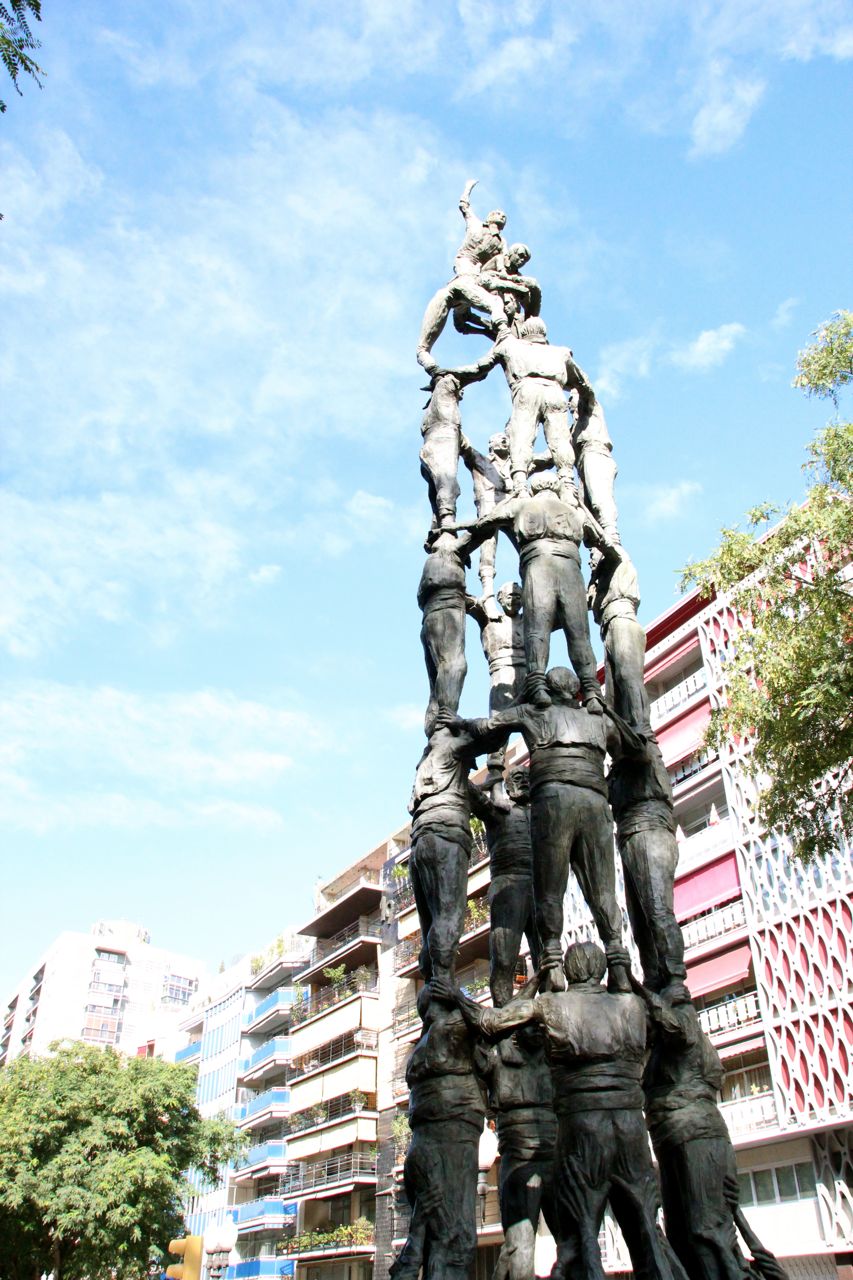
Tarragona is in southern Catalonia directly on the Mediterranean Sea with a population of 134,000.
The tourist drive of this location would be the pretty walking strip or Rambla which leads you to the stunning views and the Roman ruins.
The human tower monument statue we were so fascinated with, symbolizes the bi-annual sporting event, where the leading human towers around Spain compete in Tarragona for first place. A Castrel (castle) consist of 75-500 people. The origin of this competition is Catalonian.
Although rules differ, usually these towers are nine levels high with 4 people on each level. The heaviest strongest people are near the bottom and the lightest people near the top. Music plays while they build their human tower, and the bace sometimes have hundreds of people from their colla (team) supporting the base.
I found this video of the event and felt so emotional for the children on the top. It seems crazy coming from my culture, but I guess it is like running with the bulls or the tomato festival, you have to experience it to truly understand it. This is going on my bucket list.
In fact, UNESCO considers Castellers to be amongst the ‘Masterpieces of the Oral and Intangible Heritage of Humanity.”
This art is passed down generation to generation.
No matter how much I researched could not find official rules. I guess, how long they stay in tower position for, if they fall or do not fall, and if they do anything a little differently, originality like the man in the video that held four people on his shoulders alone. If he didn’t win… not who did!
The bubble photos show how creative the Spanish become in a tough economy. A man entertained tourists and encourages donations. Resourceful is nothing else like the man our side of Barcelona’s La Sangrada Familia Cathedral where the bums do the same for cash.
The photo of the goose and the fois gras made me laugh. In Canada, it would never be excepted to see the animal you are about to eat. The total disconnect from the animal to the plate is somewhat alarming once your outside the culture having experienced a new one. Here they leave the head on animals to make sure you know what you get. For instance a rabbit and a cat look awfully similar once skinned. I personally like to know what I am eating, although I haven’t had rabbit since moving to France.
Daniel wore his new Halloween hat with the clever stuck in the top. The Spanish we encountered were super friendly towards Daniel, some took photos of him and even laughed out loud. They are good sports!
The Rambla Market had everything you can imagine and not much different than our French markets for ‘Made in China’ clothes for cheap and knock-off runners and shoes. In a French market you expect a good selection of artisan quality local grown foods, but here none in sight. In fact, it was more a market for bags, purses, clothes, shoes with the exception of the pet/farm animals. They had hundreds of chicks and budgies for sale, a few cages of pot belly bigs freshly weened and ready for a family. I don’t think they eat this variety, but maybe I should ask the Danes who have 12 million pigs to 5 million people.
Angelina’s feet were ruined by her flip flops the first day in Spain. The next day she managed with her sneakers but by day three there was nothing we could do. We bought her open back crock knock offs for 6€ that smell like a cheap dollar store. She used them while we walked around Tarragona, however it only gave us a few extra hours until she completely melted down.
While we were in Tarragona, Spain a Spanish political party protested up a side street. We don’t know what it was about as they paraded through the streets, but felt their passion.
We ended up having Chinese food in Tarragona, something we miss from home. In France good oriental food is hard to find, and even bad Japanese is expensive. For around 20€, we feasted on Chinese fast food. I loved the spring rolls.
The Roman ruins in Tarragona are spectacular. We visited the Amphitheatre and viewed the sacred burial grounds near the sea.
Other Roman buildings include:
- the walls
- the capitol, or citadel
- the Forum
- the palace of Augustus, called the house of Pilate
- the so-called tower, or sepulchre, of the Scipios
- arch of Sura, or of Bara
- the Aurelian Way.
Honestly, so much history.
Spain is further south than France, and the climate was still warm when we visited. Tarragona is a sea port.
One thing I find funny about Spain, is the amount of industry seaside and highway visible. Did they not get the memo to define different areas for different industry. It is hard to enjoy beautiful views when a huge plant spews smoke off to one side and the other.
I found Barcelona eclectic in the same way, where industry mixes in big cities instead of off to one side or relocated to subareas to keep the tourist areas beautiful. Just an idea…
Perhaps the more money a city gets the more room for improvement. Spain is clearly in a recession. Even a seaside restaurant is a faction of the cost of a similar restaurant in France and I would guess the food in Spain is more varied.
That’s Hamori’s take on Tarragon, Catalonia, Spain.
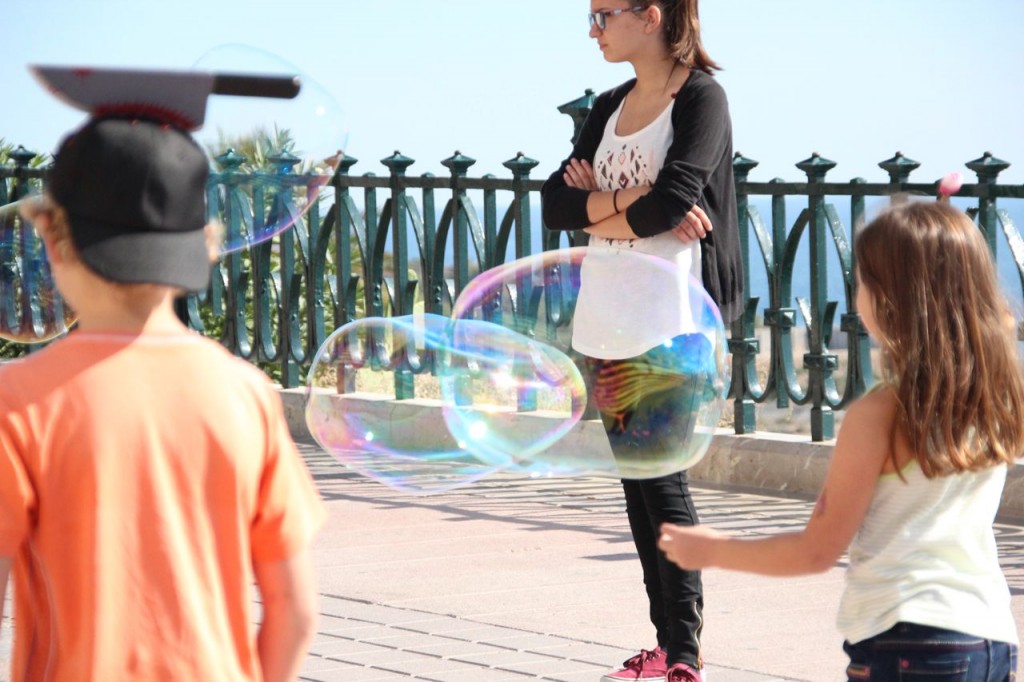
In the economy people get creative to make money
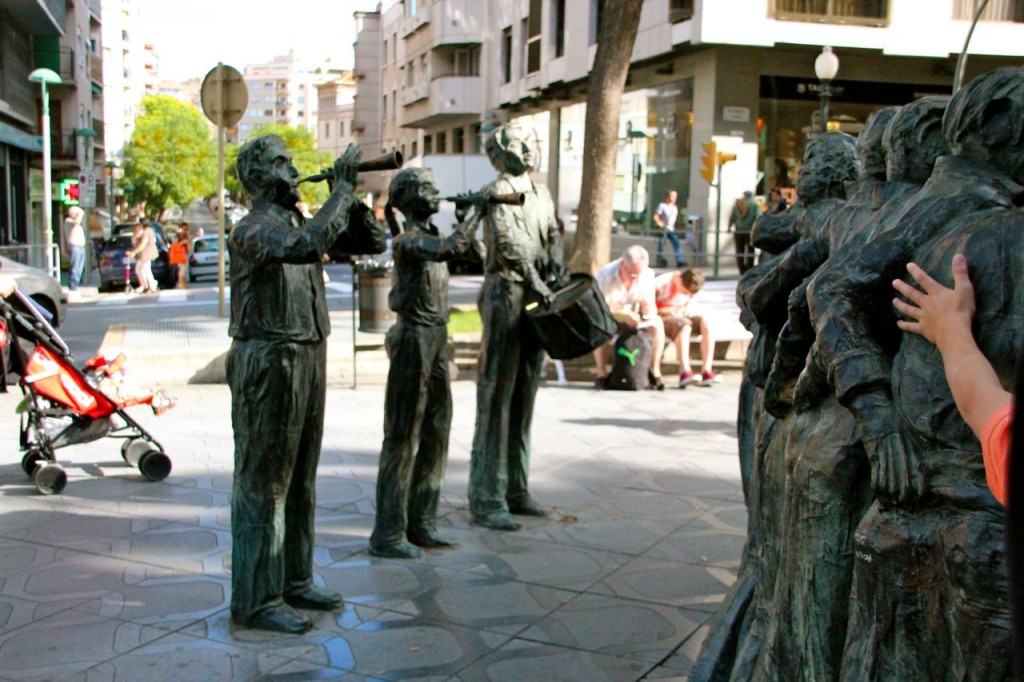
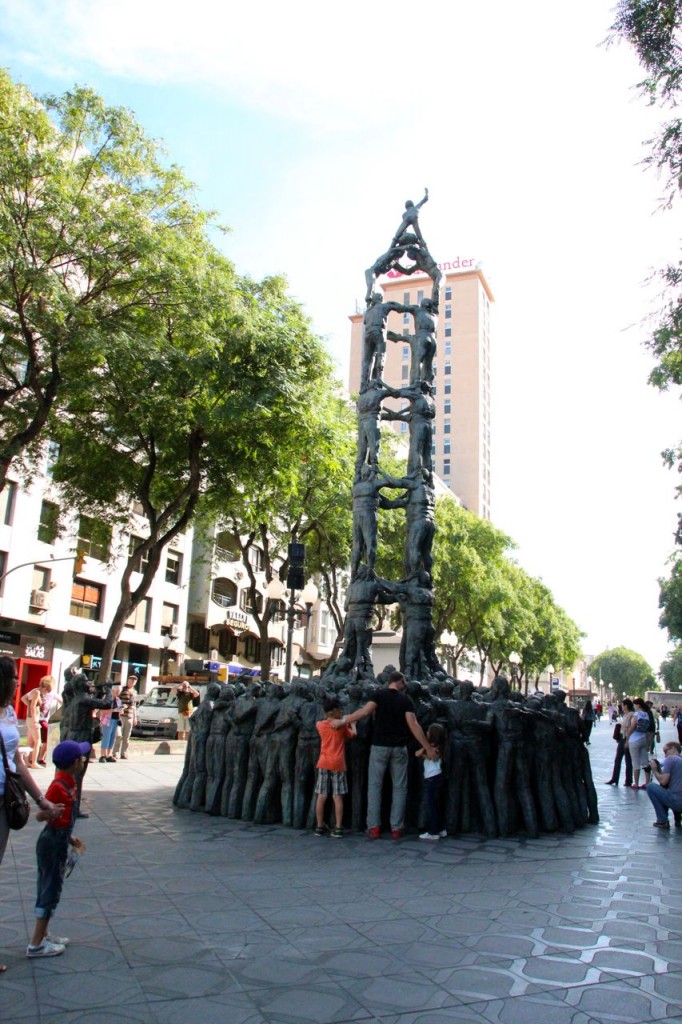
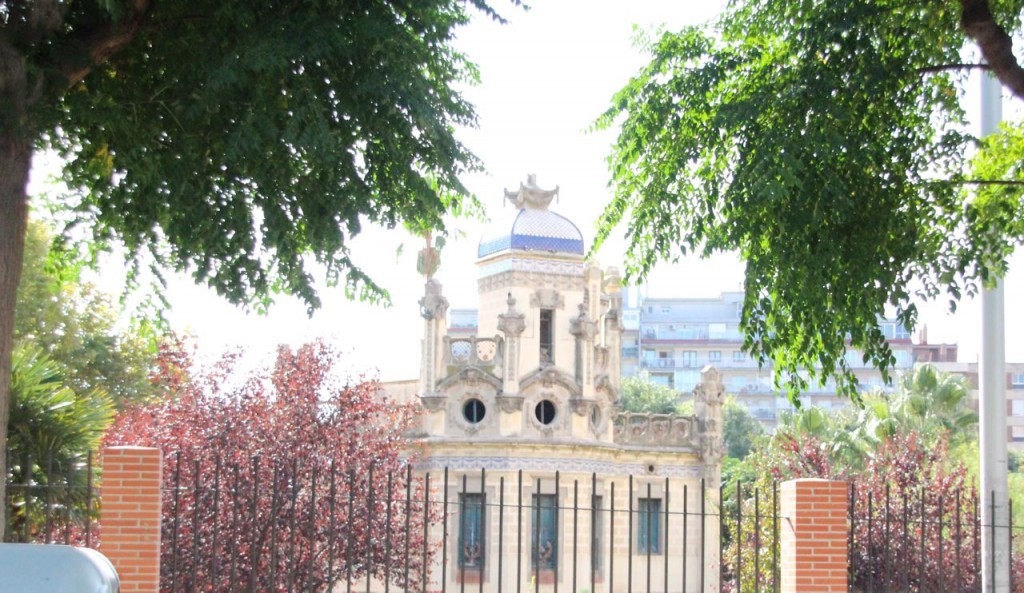
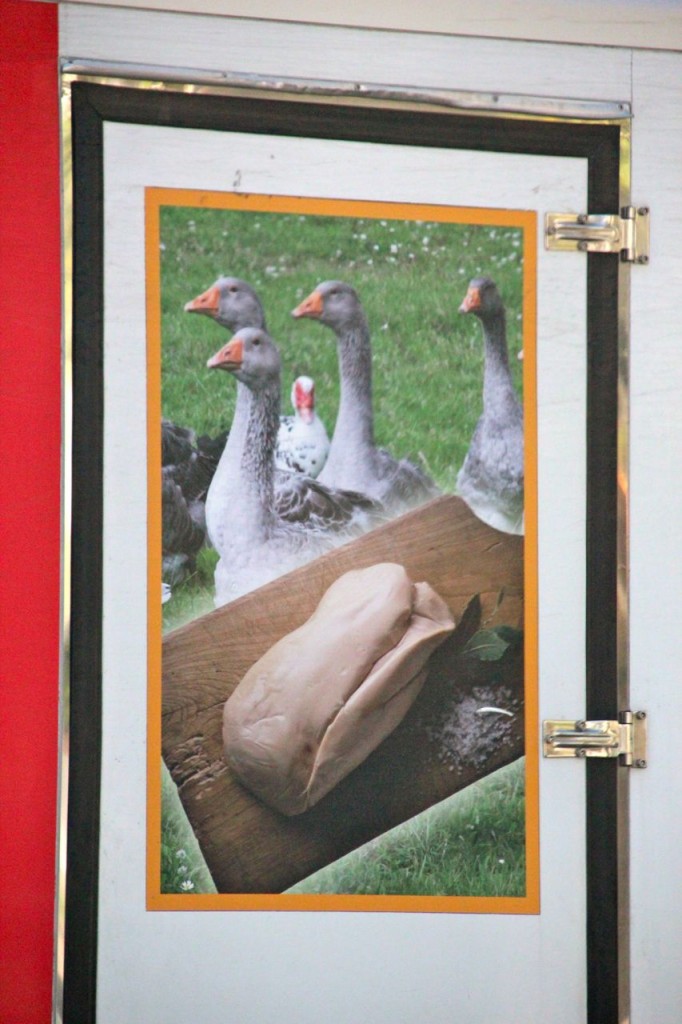
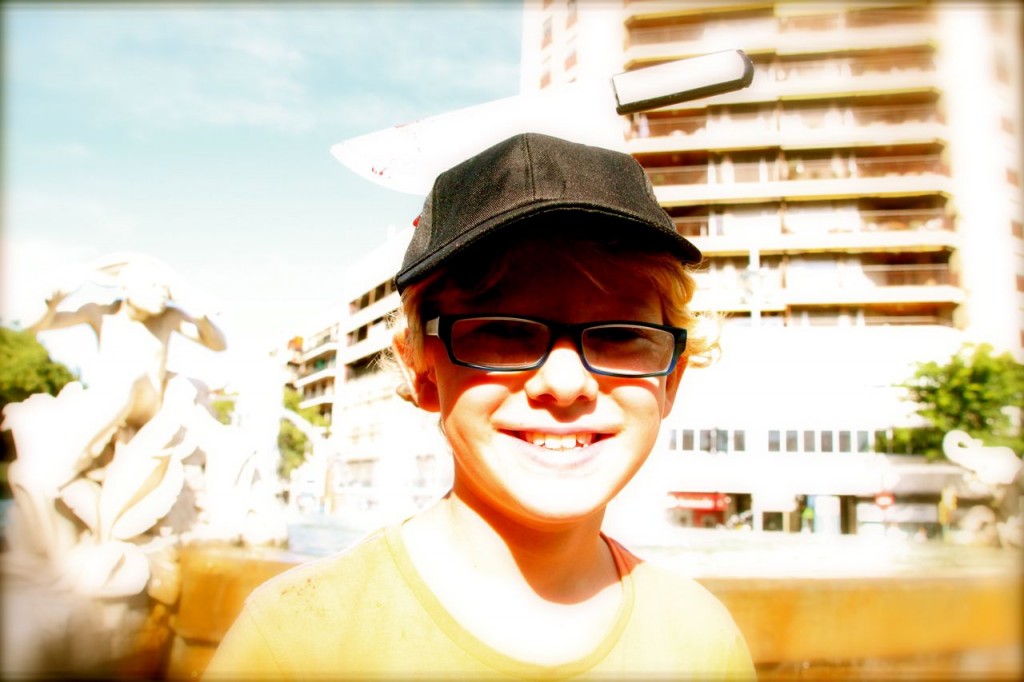
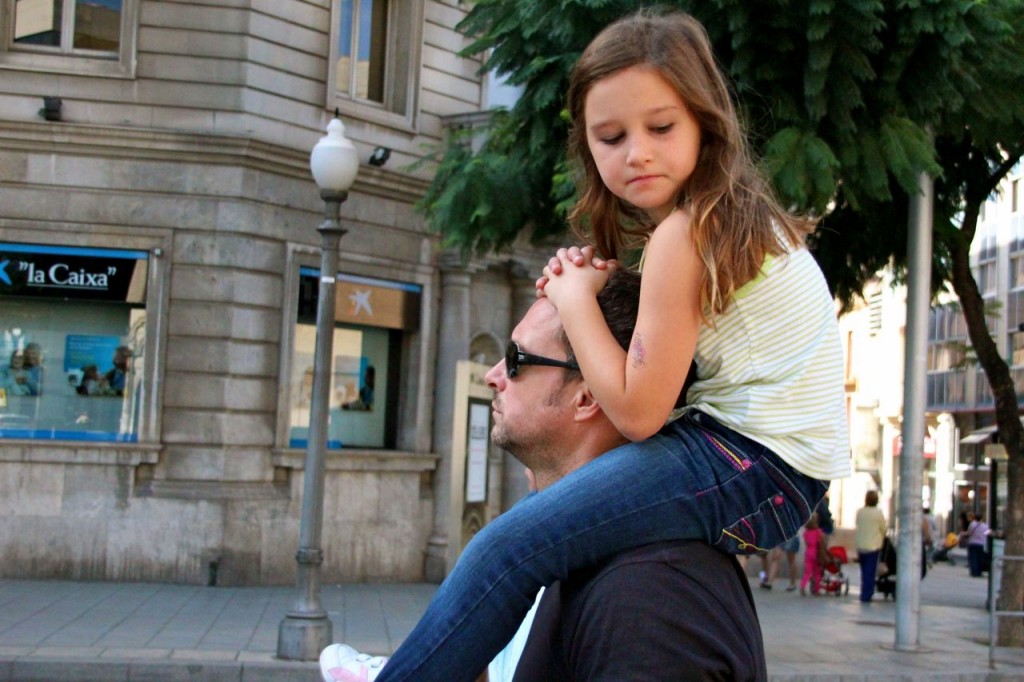
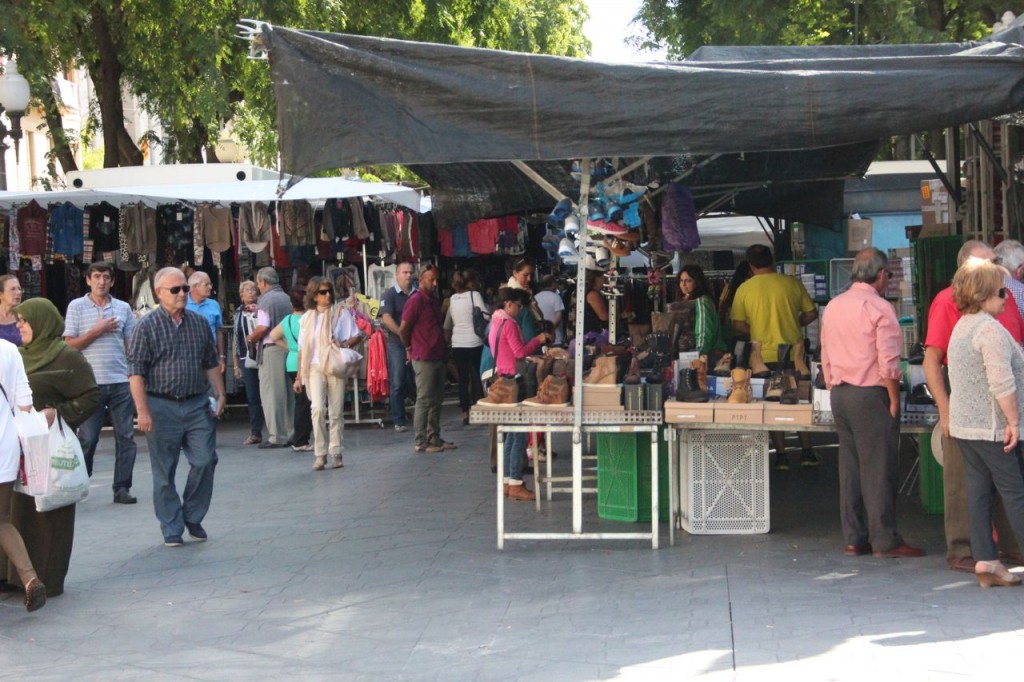
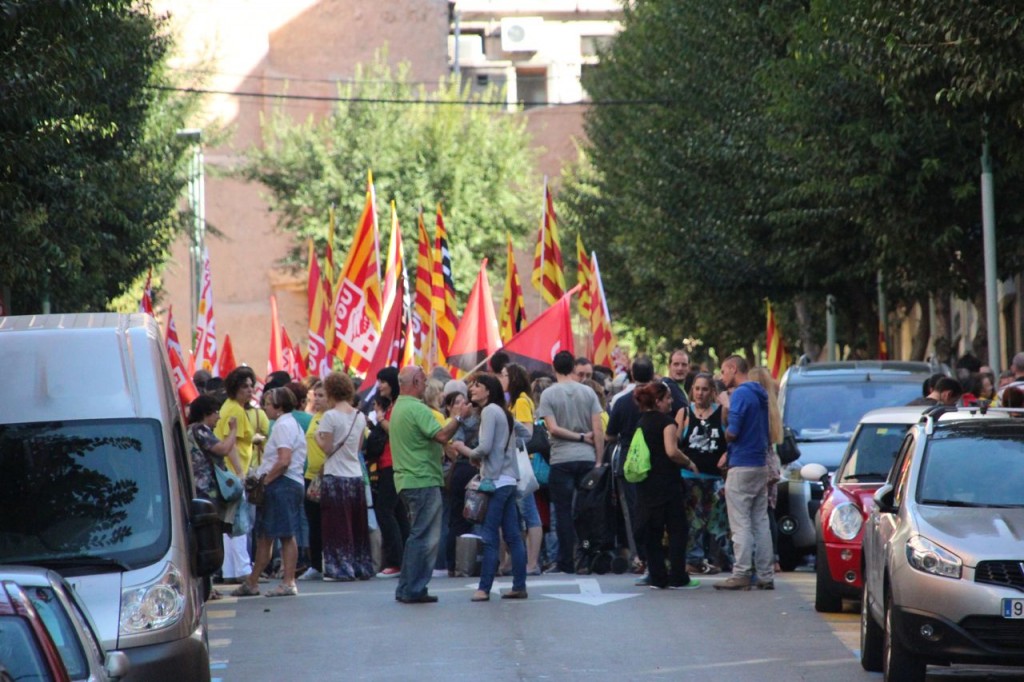
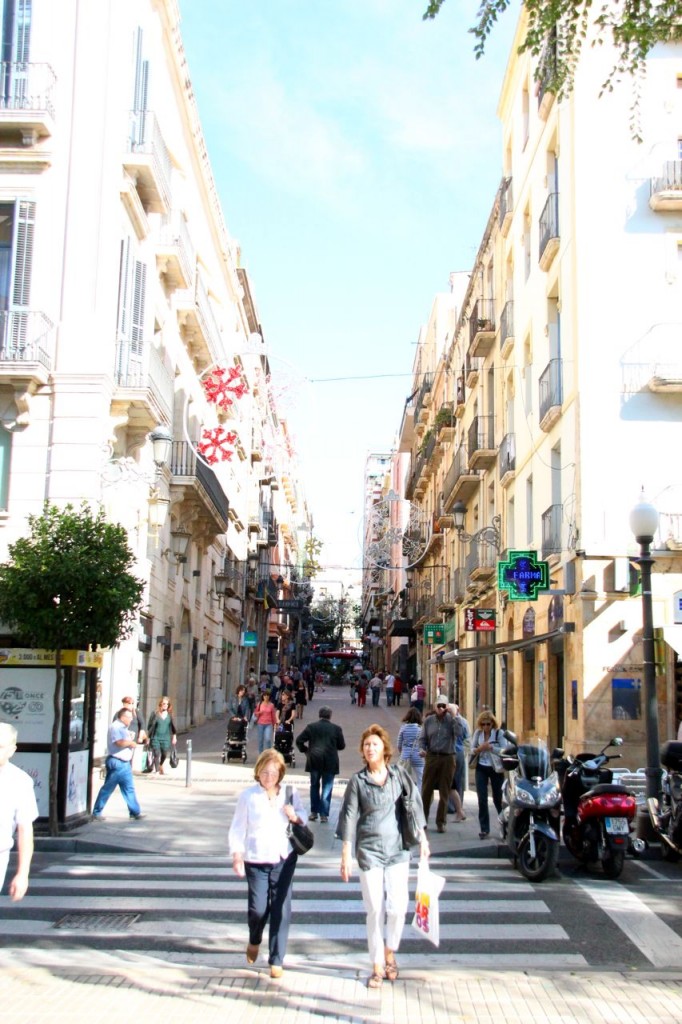
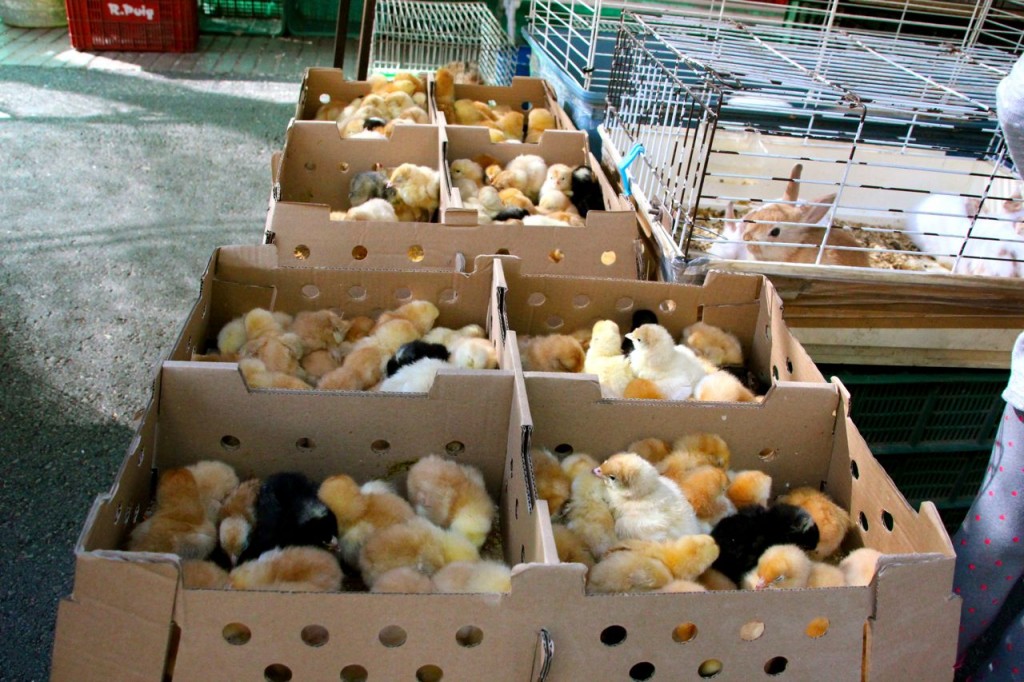
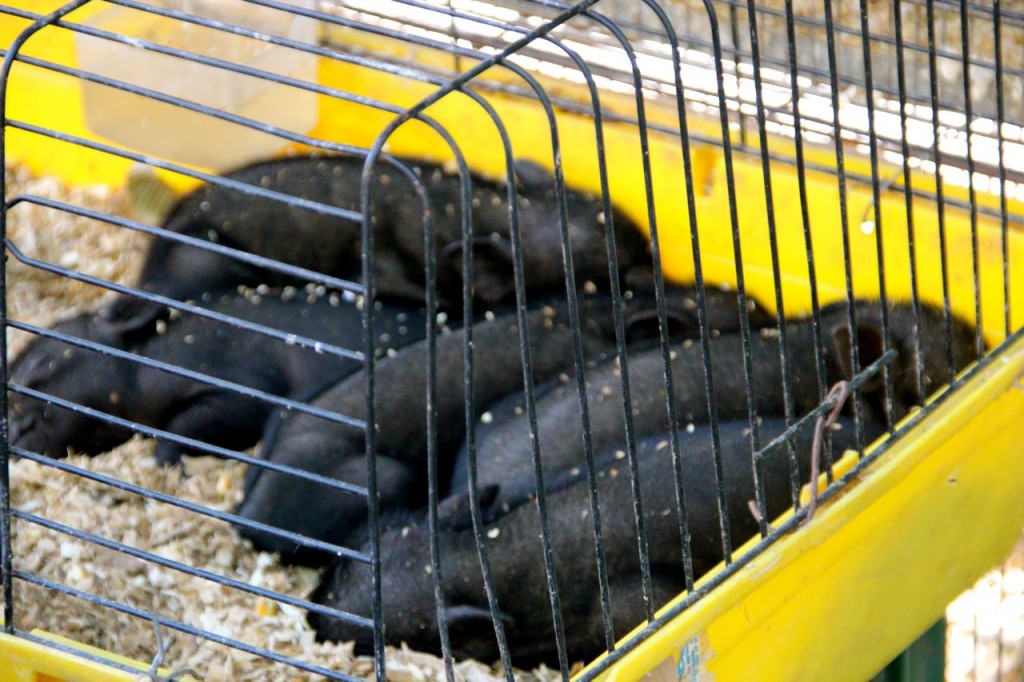
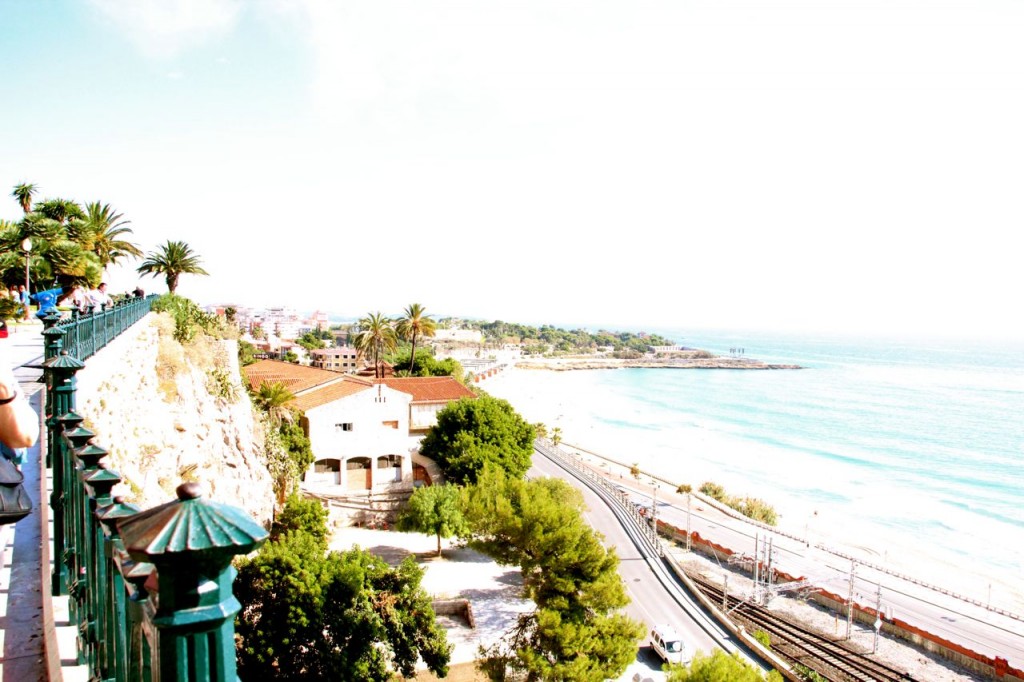
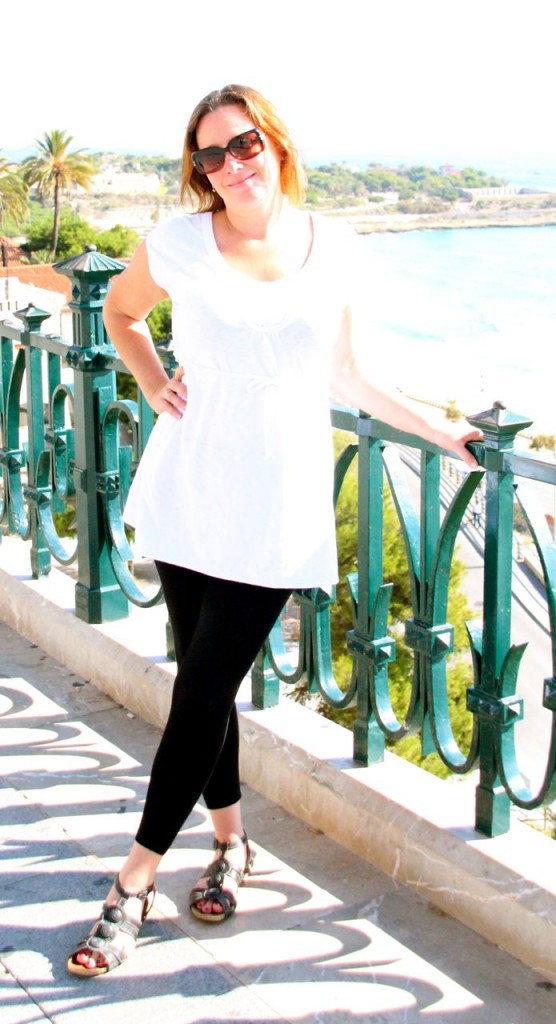
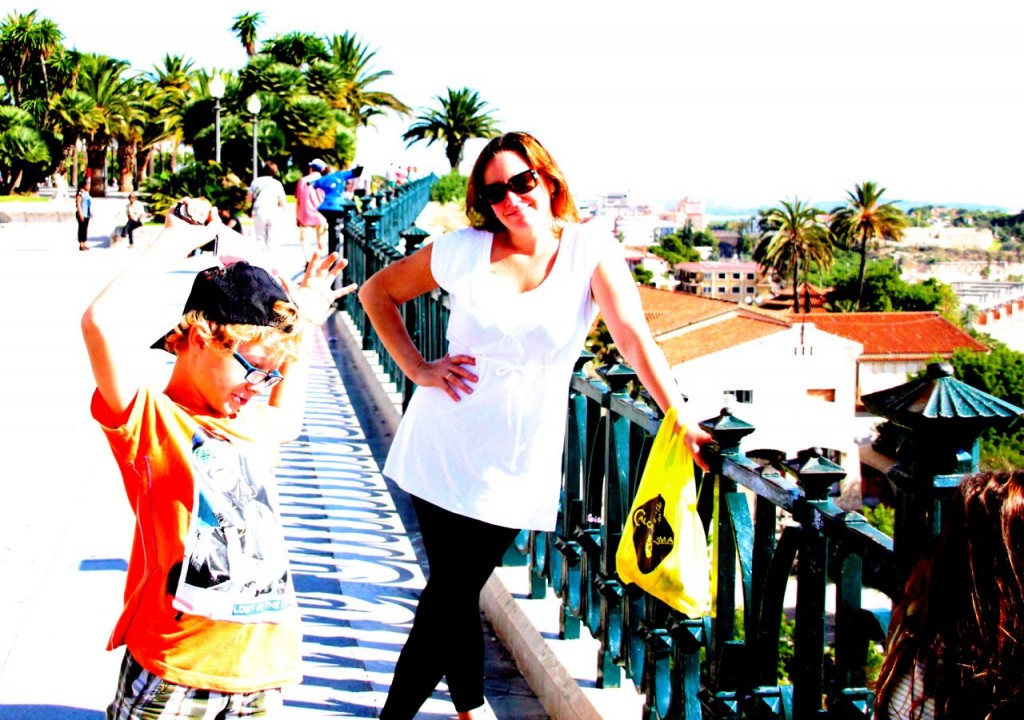
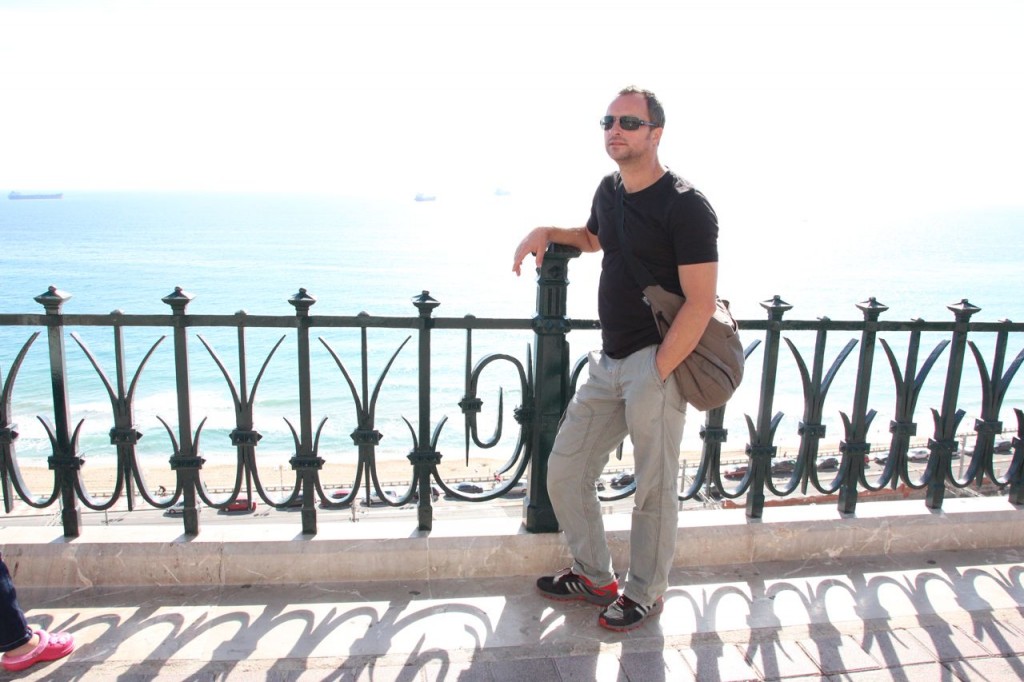
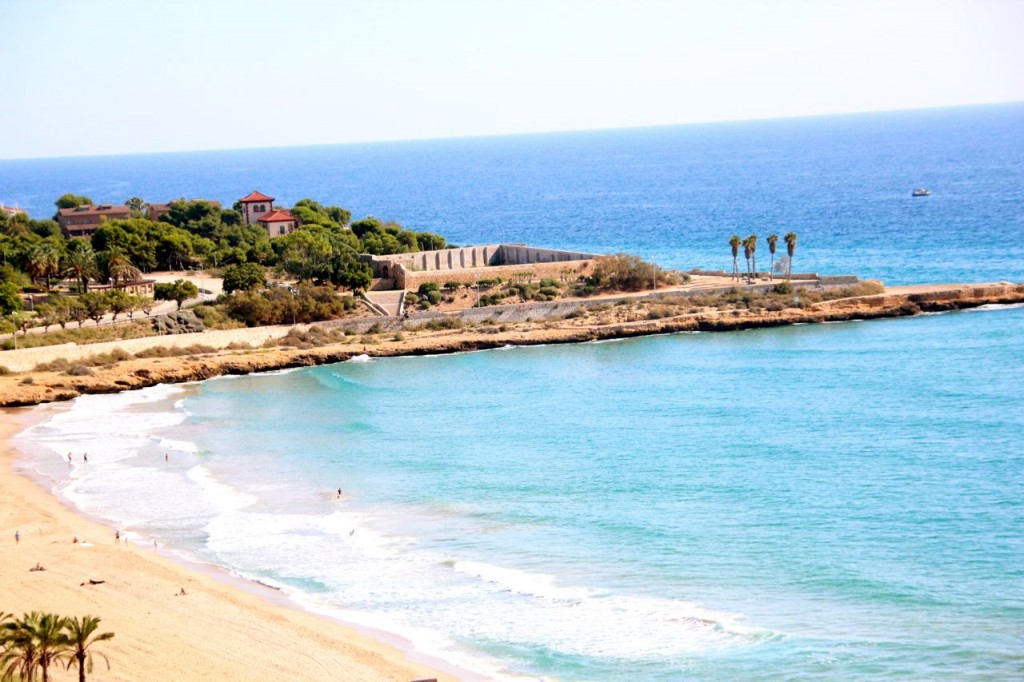
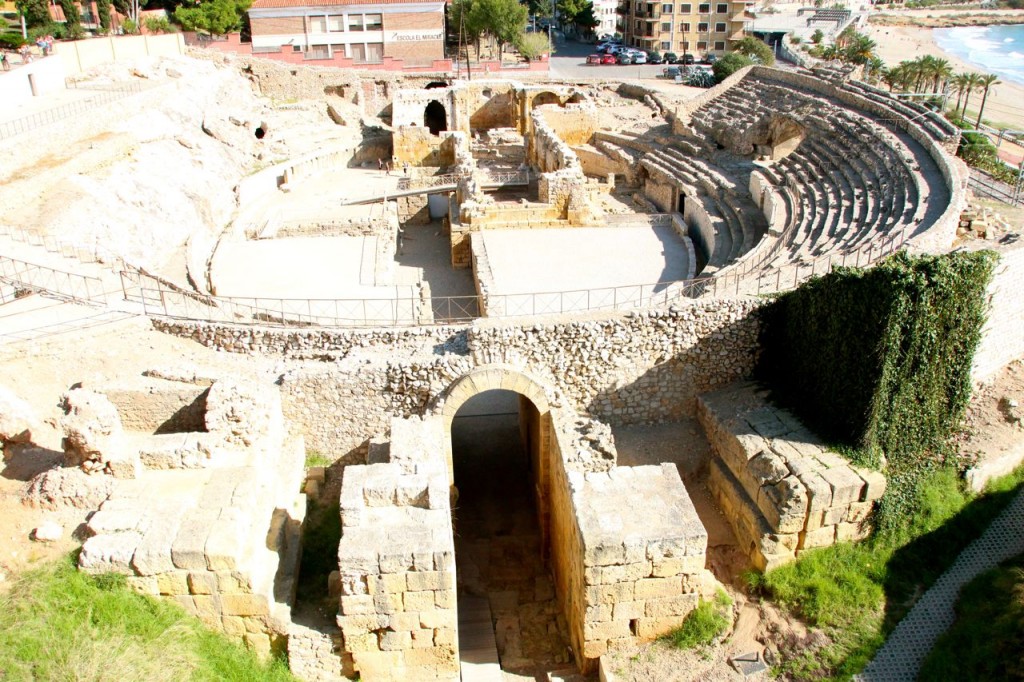
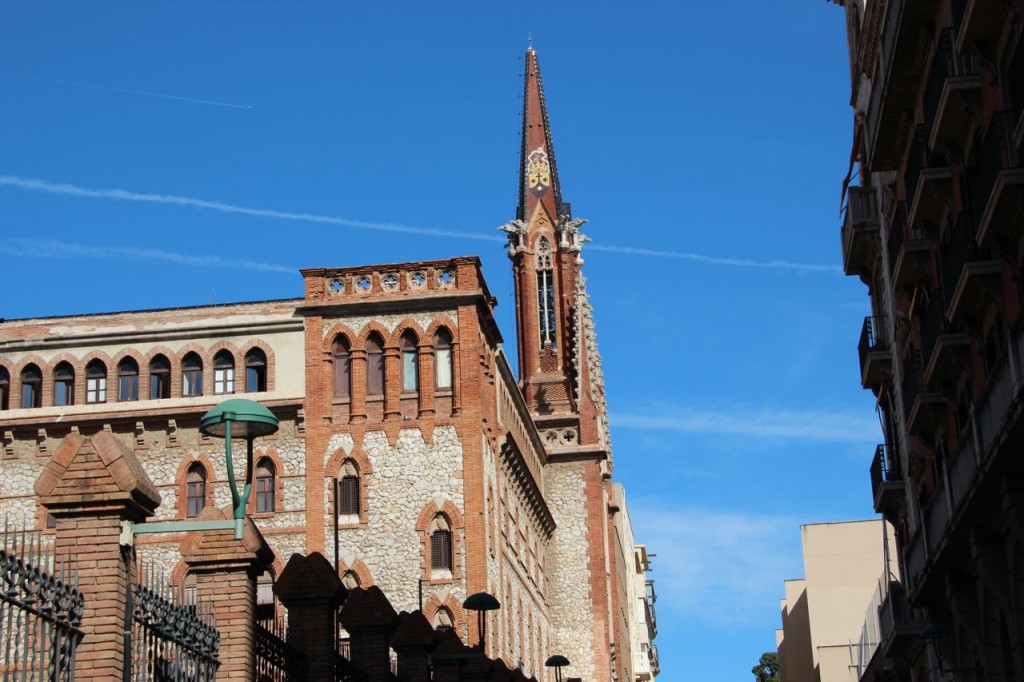
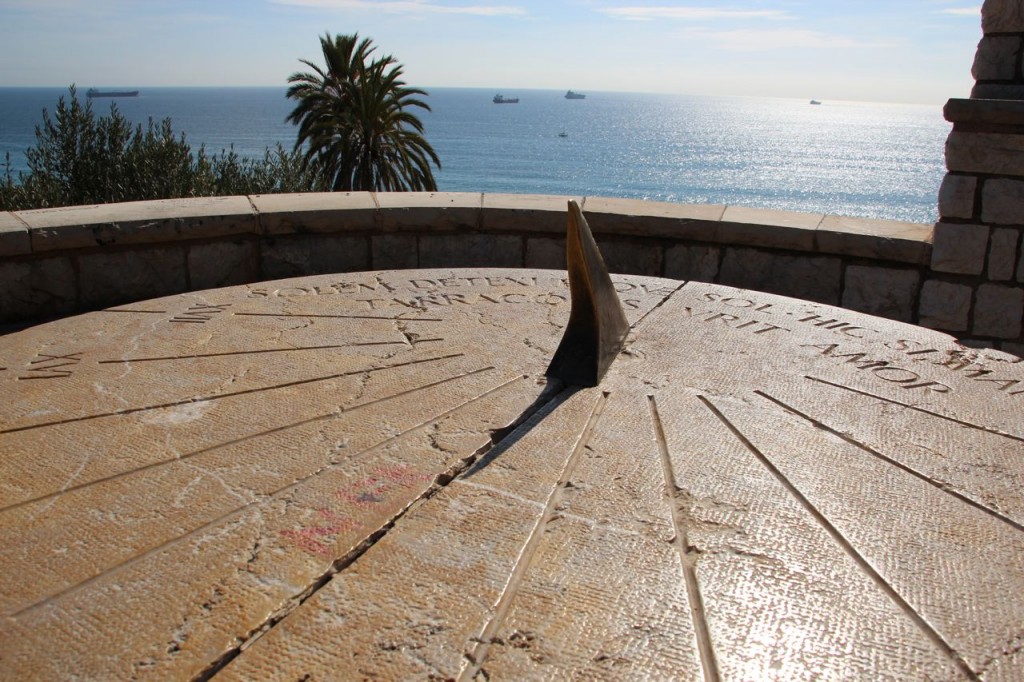
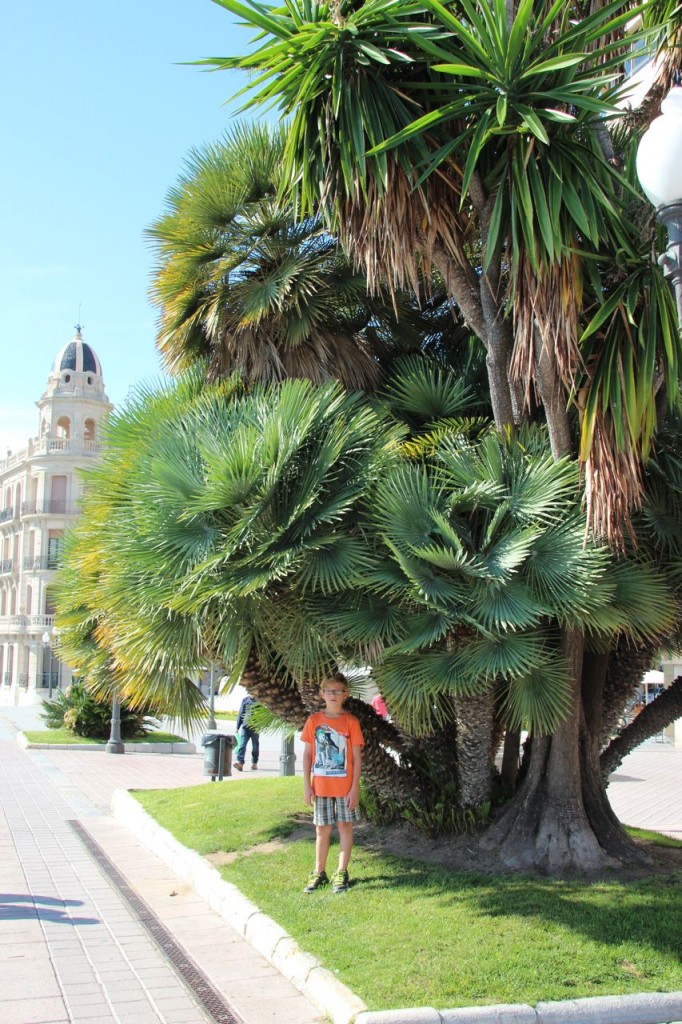
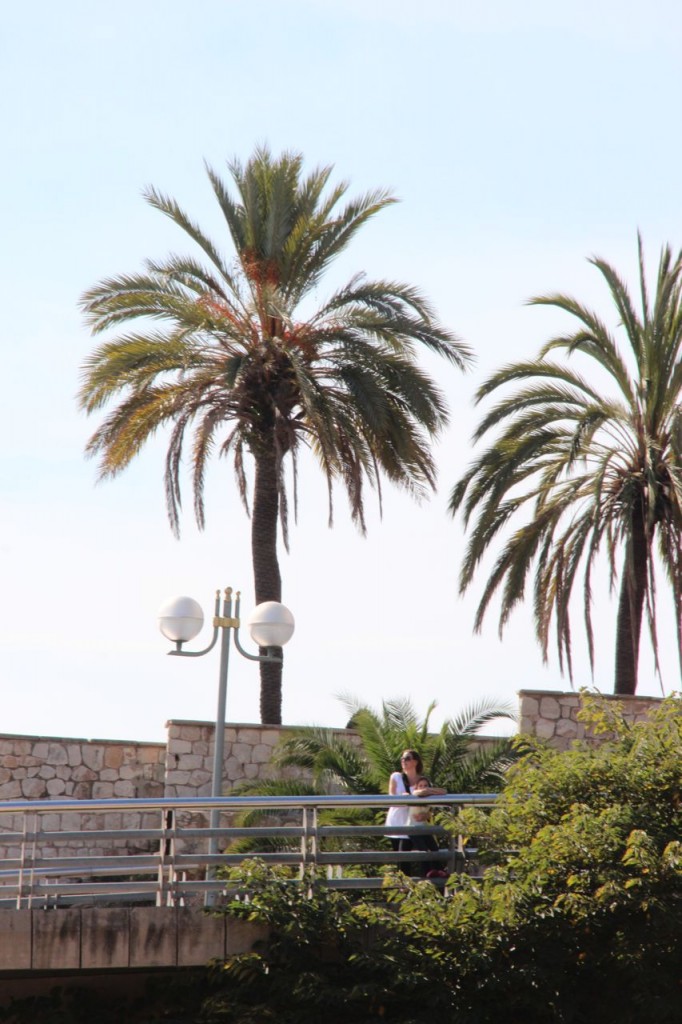
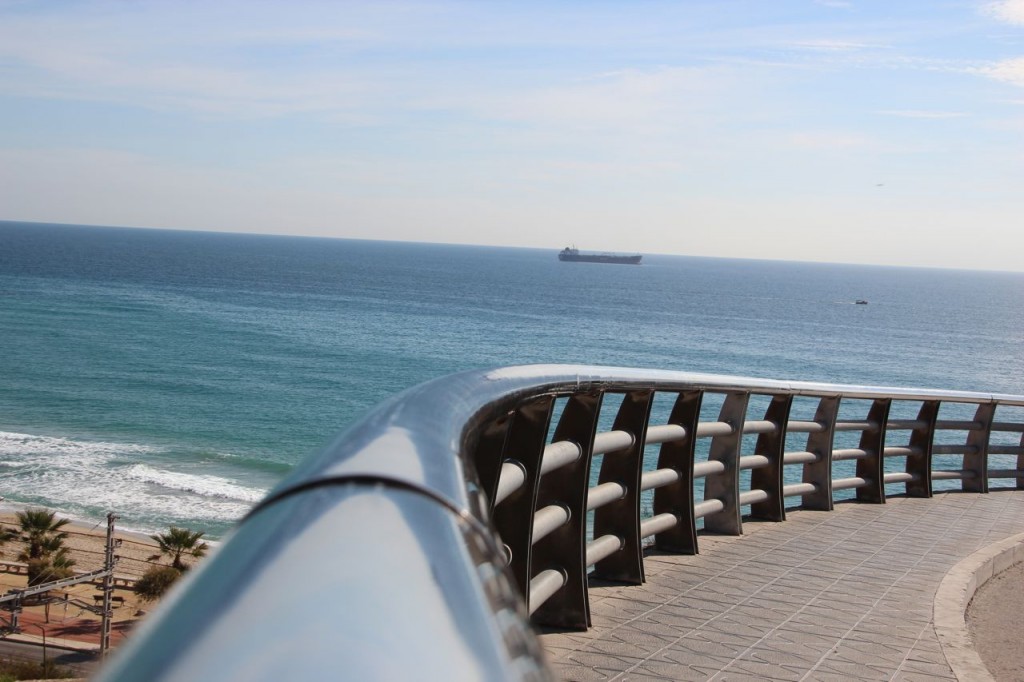
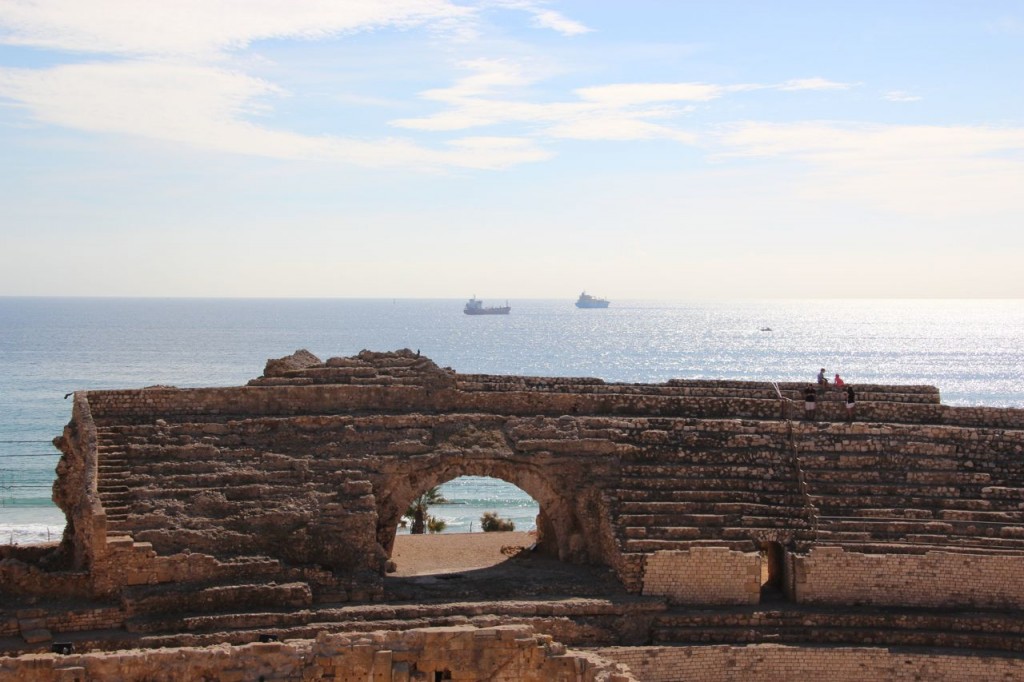
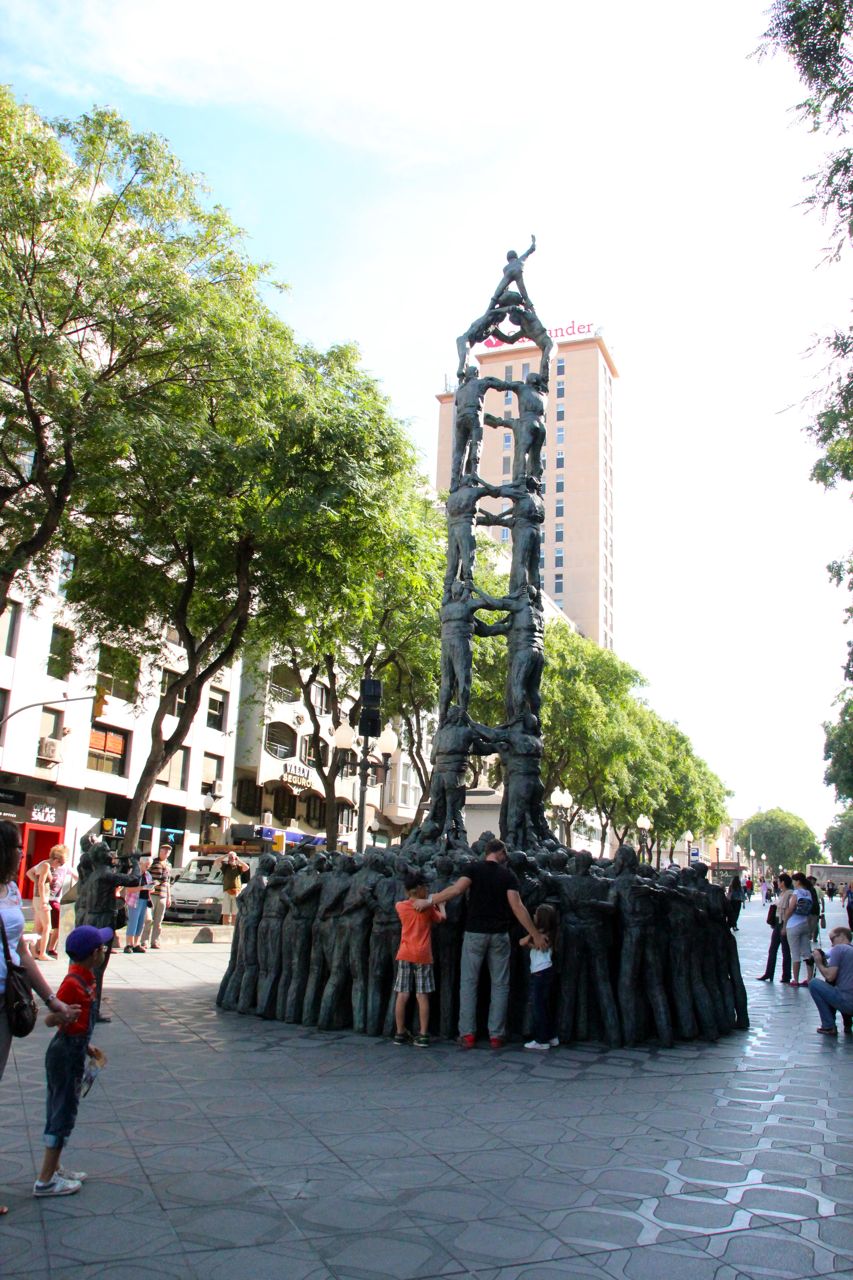
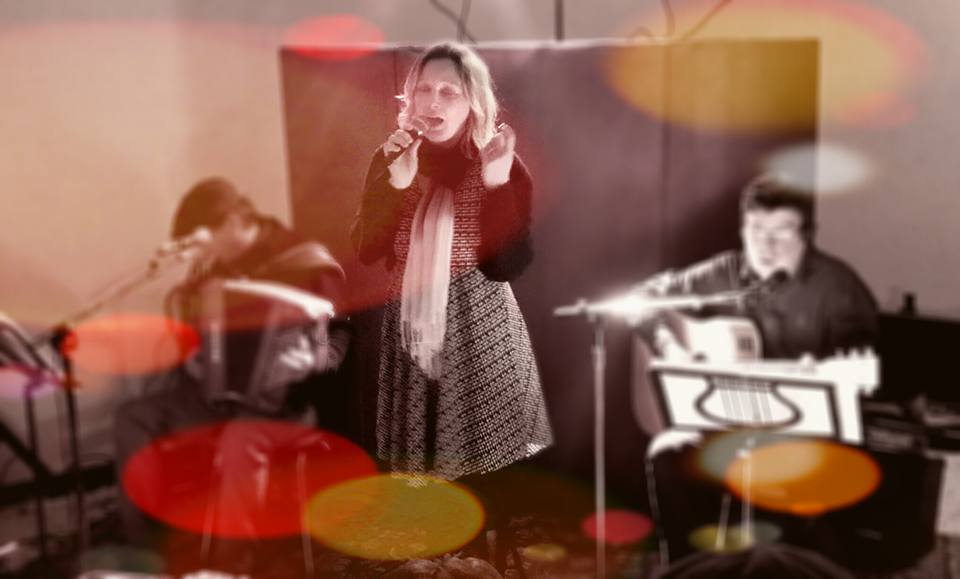
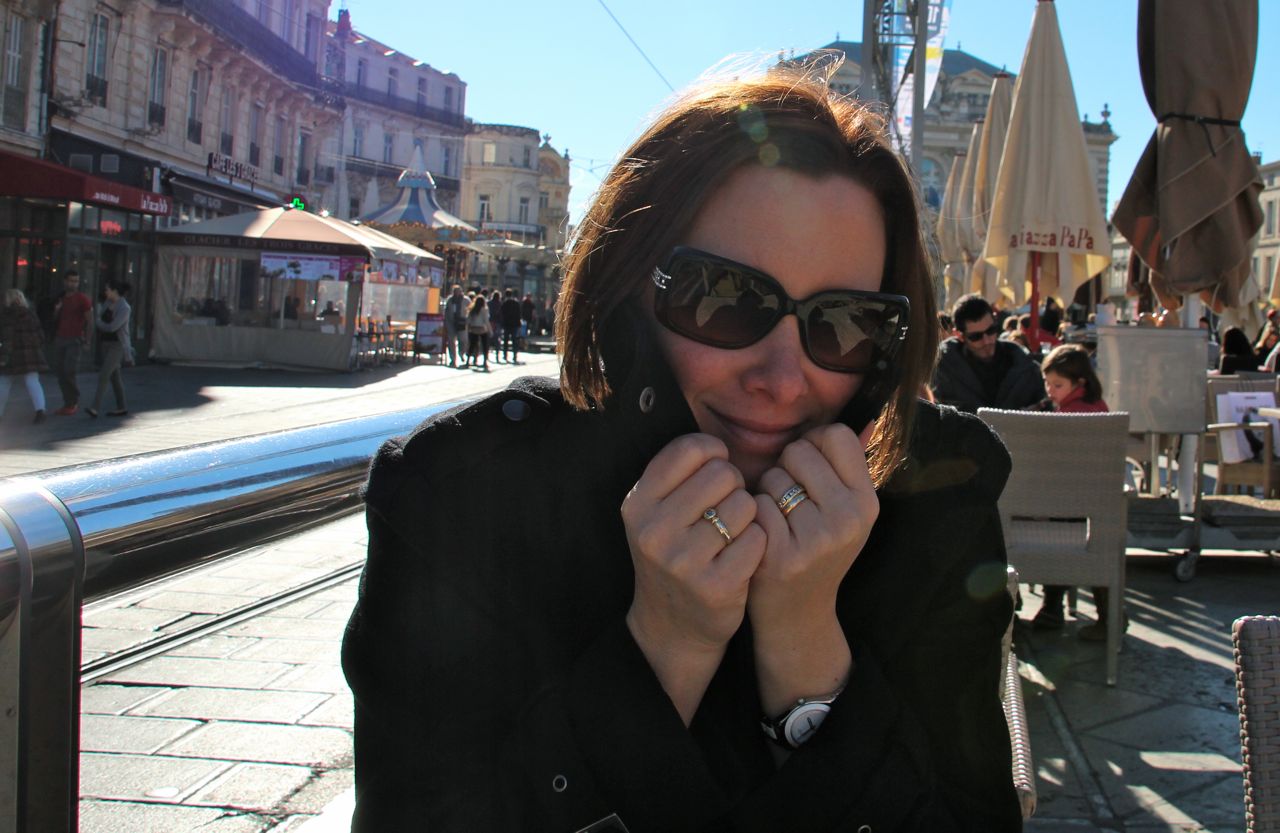
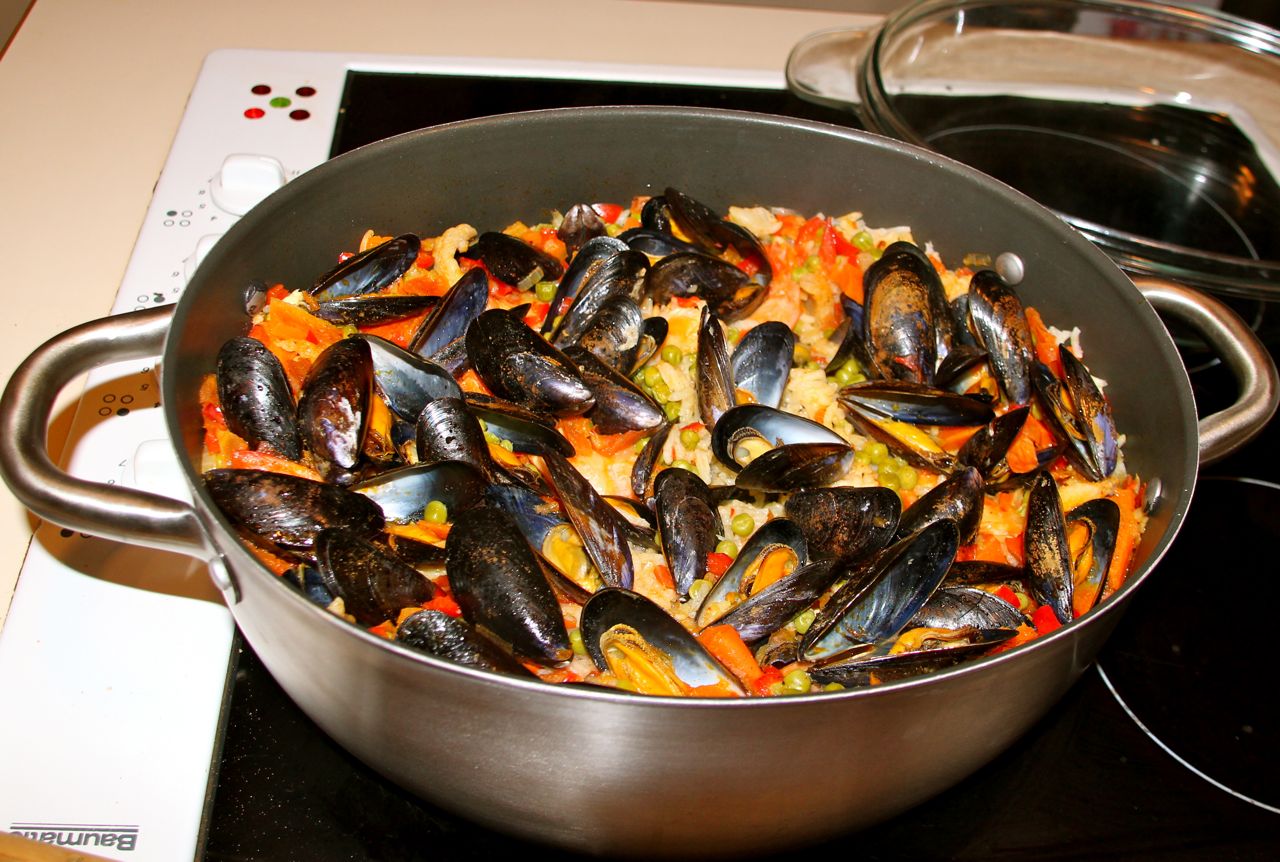


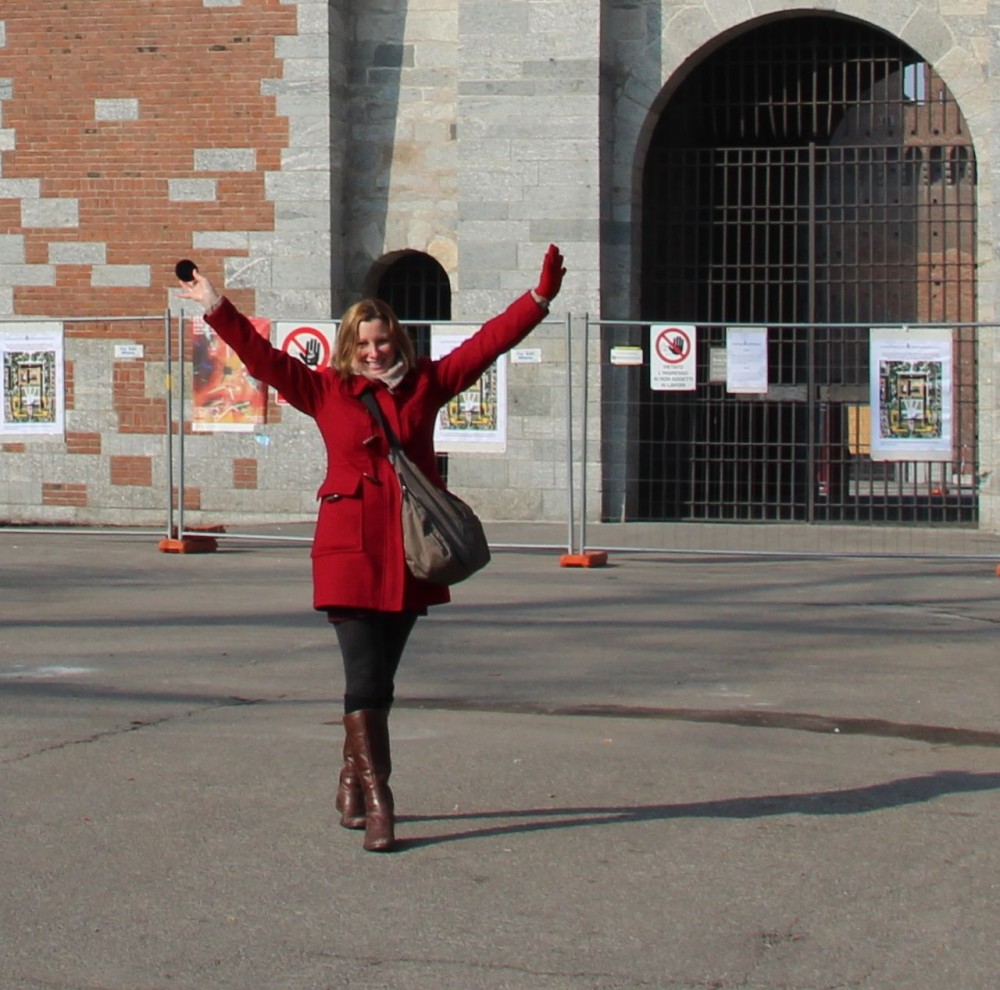




[…] Tarragona Spain […]
[…] Tarragona Spain […]
Thanks Jenny for your comment,
They eat a lot of pork in Europe but not the pot-belly variety. I would guess these will be someone’s pet like the budgies and rabbits they sell. The chicks are probably for food. Nothing more beautiful to me than a baby chick maybe duckling when they are almost green… very sweet.
I asked my friend who loved there for a few years the meaning of the statue, and will post when I know.
Cheers,
Eva
Great photos – thanks. What do you think the meaning of those statues is ? “Together we are stronger” or something ?
and those poor wee pigs – should still be with their mother at that age I imagine. Presume they are sold so people can fatten them up ? Or were they pot belly pigs for pets – I hope the latter ?!